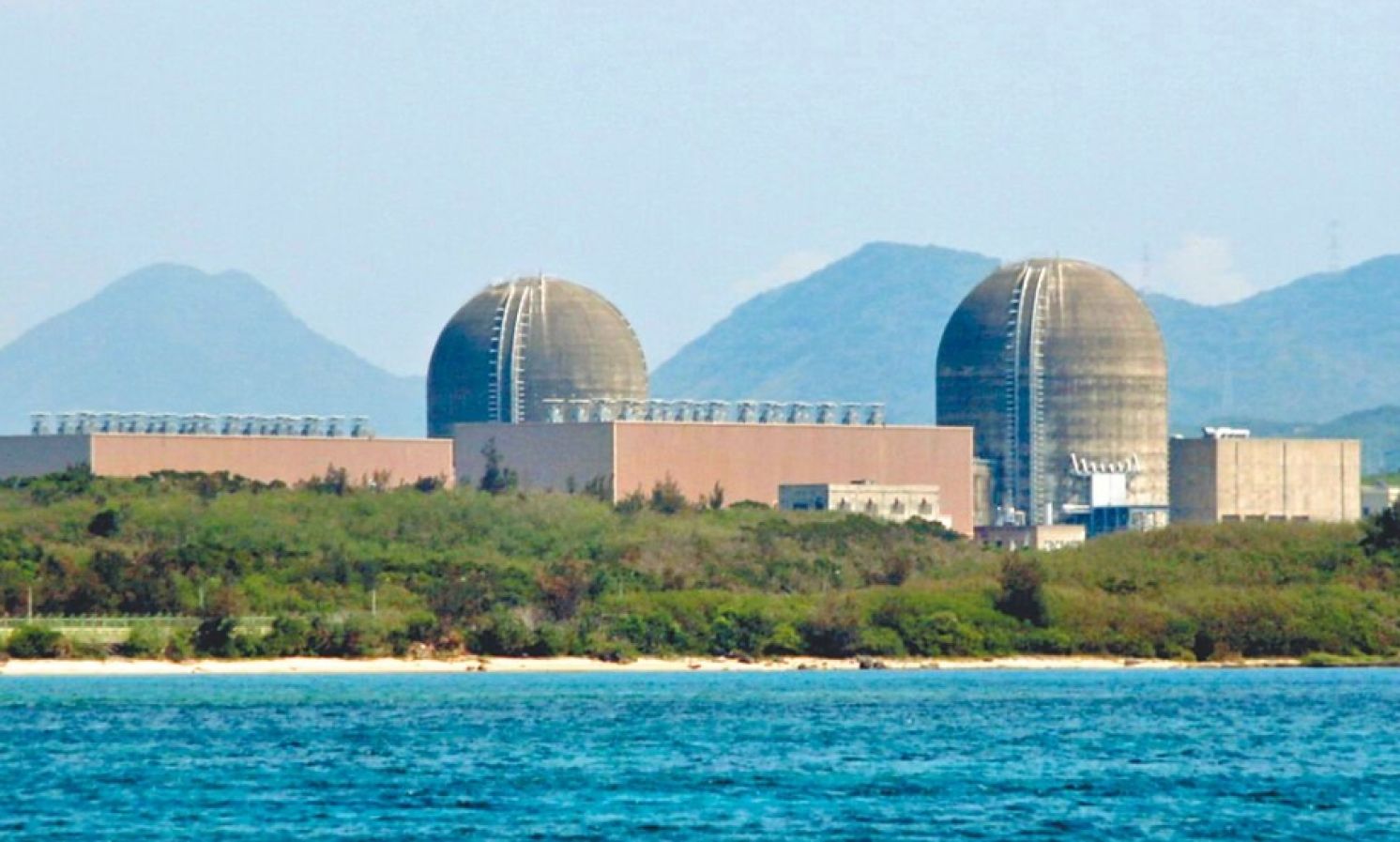
A Hundred Ways to Get Around Issues: Lies to Cover Up Power Shortages
United Daily News Editorial, October 29, 2024
Many may not realize that the Democratic Progressive Party's (DPP) long-promoted vision of "nuclear-free homeland" has already been achieved! Taiwan is currently in a "nuclear-free" state. However, this isn't due to the closure of all nuclear plants; the last operational unit of the Third Nuclear Power Plant is undergoing maintenance. Seizing this moment, the administration of President Lai Ching-te is letting people experience the "benefits" of a nuclear-free environment for a trial period of 41 days.
The second unit of the Third Nuclear Power Plant is set to be decommissioned next May, and the government chose this moment for maintenance to showcase that Taiwan can function without nuclear power. If you wonder why maintenance is scheduled for late October, it’s because the government wouldn’t dare play this game during the summer peak electricity demand—doing so would expose the failures of the "nuclear-free homeland." In hot summers, the reliability of nuclear power is well-known, while the drawbacks of solar energy, which relies on sunlight, become apparent.
The anti-nuclear debate has been ongoing in Taiwan for decades, leading to widespread aversion to nuclear energy. However, as "carbon emissions" became a priority, nuclear power suddenly regained favor as a preferred energy source. Now, the DPP appears at a loss, uncertain of how to navigate the post-nuclear era. The issue is clear: despite the government's push for renewable energy, the results have fallen far short of expectations, only providing about 10 percent clean power while severely damaging land and marine environments. Additionally, Taiwan’s heavy reliance on natural gas and coal is rapidly increasing carbon emissions, not to mention the risks associated with potential gas supply blockades.
Recently, during the so-called "nuclear-free" trial period, independent monitors of Taiwan Power Company (Taipower) discovered that on the morning of October 24, thermal power accounted for an astonishing 98 percent of electricity generation at 5:40 AM. While Taipower claimed that the sun had not yet risen and that renewable energy could reach 30 percent during the day, the average thermal power share has consistently exceeded 90 percent. This reveals the truth of the nuclear-free homeland: Taipower is ramping up thermal power at night, effectively deceiving the public into relying on "polluting electricity."
Unable to confront the issues of power shortages and carbon emissions, the DPP government is employing various excuses to evade responsibility. They even pretend to be willing to address the problems but fail to propose real solutions. Recently, Minister of Economic Affairs J.W. Kuo spoke of investing in renewable energy in the Philippines, planning to send power back to Taiwan via undersea cables. However, after being exposed for the higher electricity costs in the Philippines and the significant energy losses during transmission, he stopped discussing it. Similarly, Premier Cho Jung-tai claimed in an interview that the government is "very open" to nuclear power, but the next day, when questioned by lawmakers, he backpedaled, stating that "nuclear energy is not a panacea" without clarifying any intentions. Are the people funding these officials just to hear their nonsensical rhetoric?
In the DPP's various "lies to cover up power shortages," two recent incidents in Tainan and Taoyuan have been exposed. Tainan has claimed to lead the nation in renewable energy development, boasting an output equivalent to 17 reservoirs. Yet, it was recently revealed that Tainan's industrial electricity demand is the highest in the country, while its self-sufficiency rate is only 25 percent. The city has faced numerous scandals involving solar energy projects, marked by collusion between officials and businesses and ongoing public protests, all while creating a false narrative at both the local and central government levels. In Taoyuan, the Executive Yuan announced a shortage of 20 billion kilowatt-hours in northern Taiwan in August, which led to the denial of power supply for data centers over 5 MW. However, according to the Taiwan Electric Power Association, Taoyuan's self-sufficiency rate is 137 percent. The government's portrayal of it as a "power shortage city" is nothing short of blatant deception.
The DPP has been in power for nine consecutive years, and the issues stemming from the "nuclear-free homeland" policy, such as power transformation difficulties and electricity shortages, have become increasingly evident. Under the spell of the "Tsai-Lai" mantra, the Lai administration seems to be choosing to sidestep these challenges without offering any new ideas. Recently, the Constitutional Court issued a ruling on the congressional reform bill, effectively giving officials a "get out of lying free" card, which is a slap in the face to the concept of "transparent government." Looking at the DPP's various tricks to "lie to cover up power shortages," the business community believes that electricity shortages could lead to a collapse of Taiwan's industries, but does the Lai administration care?
Photo from: United Daily News
Article from: https://udn.com/news/story/7338/8322277